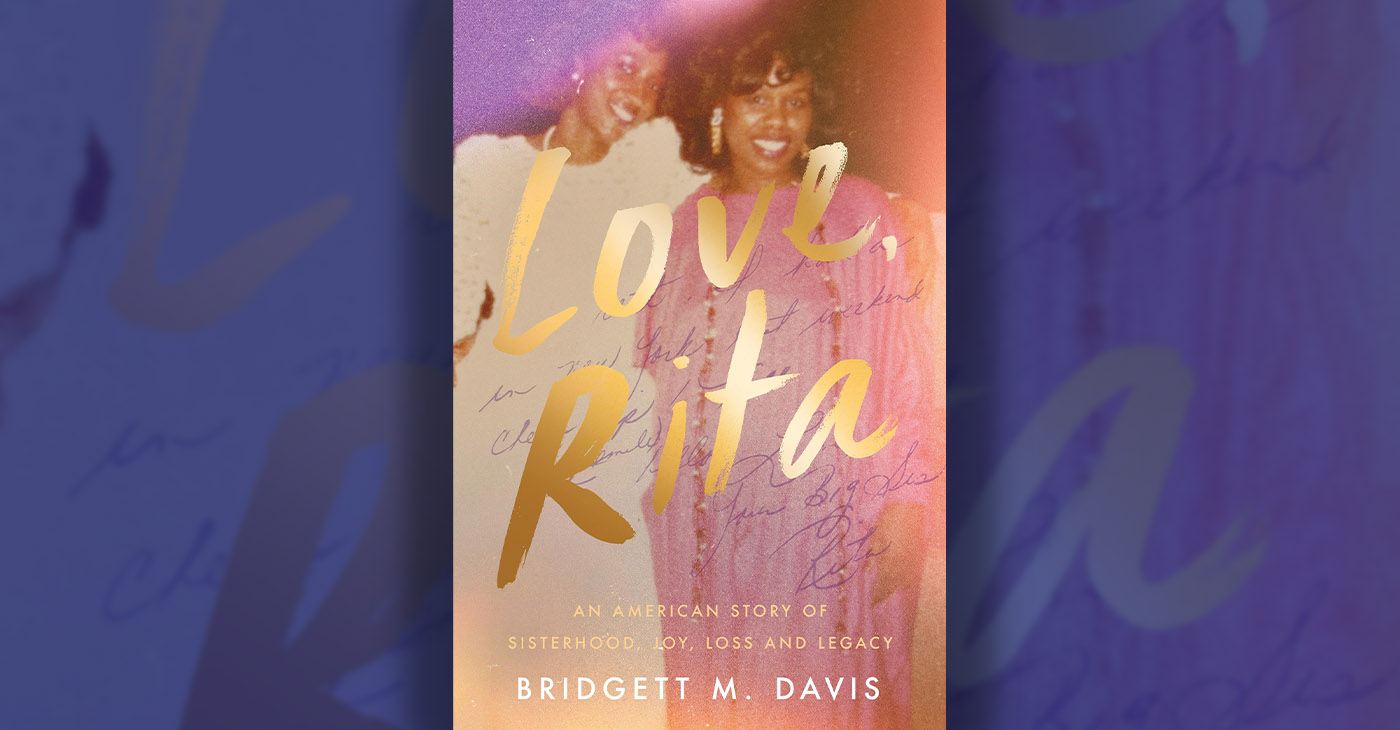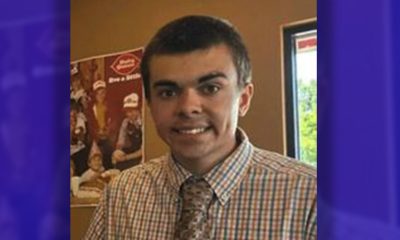Opinion
OP-ED: Parenting From Prison
By Troy Williams
Parenting from prison is not easy, but it must be done.
Tens of thousands of incarcerated men and women throughout the United States have come to realize secondary consequences of participating in crime. As a result of our actions, our children are left with the stigma of having their parent labeled a criminal and taken away for what seems like forever.
And while there are some ways to mitigate some of the damage, it is almost impossible to escape the consequences that incarceration will have on our relationship with our children.
The first three years of my incarceration, my eldest child had no less than 25 different addresses, and we struggled to keep in contact.
I was very open and honest about my mistakes, and she was very open and honest about her challenges. She told me everything, from her daily frustrations to her first boyfriend. Our bond was unbreakable.
Year after year, my children would ask, “Daddy, when are you coming home?”
Unfortunately, when serving a life sentence you don’t have answers to questions like this. After a while they stopped asking, and at one point began to question whether I was ever going to tell them.
On one hand, it was hard for them to grasp the truth of their daddy/hero not having an answer to what seemed like such a simple question.
On the other hand, their adolescent minds did not understand the complexity of the answer: “I don’t know. It depends. I have to go to the Board of Prison Hearings. If they find me suitable, the governor will have to review, and then…”
As the years went by, a sense of mistrust began to grow and a subtle disconnect slowly began to wedge between our once impenetrable bond. No matter how many letters I wrote, no matter how much I said I love you, I simply wasn’t there and I couldn’t tell them when I would be there.
I watched helplessly as my absence affected them in different ways. Like mollusk, they each put on different shells in order to protect the soft interior of their hearts. Their questions about when I was coming home turned to, “Why won’t they let you out?”
In part, they were frustrated by their perceived injustice of the system and in part, they questioned my responsibility.
Like Richard Johnson, I realized that incarceration “can never be an excuse not to do your upmost to help raise your offspring as best as possible under seemingly impossible conditions.”
I wrote letters even when none were returned. I sent birthday cards, Christmas cards, Valentine’s Day cards, and apologized a thousand times.
I wanted to prevent them from developing abandonment issues. But even with all that, the truth is I wasn’t there. I know I could have and should have done more. So, I called my daughter and asked.
Her response, “That’s a good question. The only thing I can think of is – maybe you should have never gotten locked up in the first place.”
Activism
Oakland Post: Week of April 30 – May 6, 2025
The printed Weekly Edition of the Oakland Post: Week of April 30 – May 6, 2025

To enlarge your view of this issue, use the slider, magnifying glass icon or full page icon in the lower right corner of the browser window.
Arts and Culture
BOOK REVIEW: Love, Rita: An American Story of Sisterhood, Joy, Loss, and Legacy
When Bridgett M. Davis was in college, her sister Rita was diagnosed with lupus, a disease of the immune system that often left her constantly tired and sore. Davis was a bit unfazed, but sympathetic to Rita’s suffering and also annoyed that the disease sometimes came between them. By that time, they needed one another more than ever.

By Terri Schlichenmeyer
Author: Bridgett M. Davis, c.2025, Harper, $29.99, 367 Pages
Take care.
Do it because you want to stay well, upright, and away from illness. Eat right, swallow your vitamins and hydrate, keep good habits and hygiene, and cross your fingers. Take care as much as you can because, as in the new book, “Love, Rita” by Bridgett M. Davis, your well-being is sometimes out of your hands.
It was a family story told often: when Davis was born, her sister, Rita, then four years old, stormed up to her crying newborn sibling and said, ‘Shut your … mouth!’
Rita, says Davis, didn’t want a little sister then. She already had two big sisters and a neighbor who was somewhat of a “sister,” and this baby was an irritation. As Davis grew, the feeling was mutual, although she always knew that Rita loved her.
Over the years, the sisters tried many times not to fight — on their own and at the urging of their mother — and though division was ever present, it eased when Rita went to college. Davis was still in high school then, and she admired her big sister.
She eagerly devoured frequent letters sent to her in the mail, signed, “Love, Rita.”
When Davis was in college herself, Rita was diagnosed with lupus, a disease of the immune system that often left her constantly tired and sore. Davis was a bit unfazed, but sympathetic to Rita’s suffering and also annoyed that the disease sometimes came between them. By that time, they needed one another more than ever.
First, they lost their father. Drugs then invaded the family and addiction stole two siblings. A sister and a young nephew were murdered in a domestic violence incident. Their mother was devastated; Rita’s lupus was an “added weight of her sorrow.”
After their mother died of colon cancer, Rita’s lupus took a turn for the worse.
“Did she even stand a chance?” Davis wrote in her journal.
“It just didn’t seem possible that she, someone so full of life, could die.”
Let’s start here: once you get past the prologue in “Love, Rita,” you may lose interest. Maybe.
Most of the stories that author Bridgett M. Davis shares are mildly interesting, nothing rare, mostly commonplace tales of growing up in the 1960s and ’70s with a sibling. There are a lot of these kinds of stories, and they tend to generally melt together. After about fifty pages of them, you might start to think about putting the book aside.
But don’t. Not quite yet.
In between those everyday tales, Davis occasionally writes about being an ailing Black woman in America, the incorrect assumptions made by doctors, the history of medical treatment for Black people (women in particular), attitudes, and mythologies. Those passages are now and then, interspersed, but worth scanning for.
This book is perhaps best for anyone with the patience for a slow-paced memoir, or anyone who loves a Black woman who’s ill or might be ill someday. If that’s you and you can read between the lines, then “Love, Rita” is a book to take in carefully.
Activism
Faces Around the Bay: Author Karen Lewis Took the ‘Detour to Straight Street’
“My life has been a roller-coaster with an unlimited ride wristband! I was raised in Berkeley during the time of Ron Dellums, the Black Panthers, and People’s Park. I was a Hippie kid, my Auntie cut off all our hair so we could wear the natural styles like her and Angela Davis.

By Barbara Fluhrer
I met Karen Lewis on a park bench in Berkeley. She wrote her story on the spot.
“My life has been a roller-coaster with an unlimited ride wristband! I was raised in Berkeley during the time of Ron Dellums, the Black Panthers, and People’s Park. I was a Hippie kid, my Auntie cut off all our hair so we could wear the natural styles like her and Angela Davis.
I got married young, then ended up getting divorced, raising two boys into men. After my divorce, I had a stroke that left me blind and paralyzed. I was homeless, lost in a fog with blurred vision.
Jesus healed me! I now have two beautiful grandkids. At 61, this age and this stage, I am finally free indeed. Our Lord Jesus Christ saved my soul. I now know how to be still. I lay at his feet. I surrender and just rest. My life and every step on my path have already been ordered. So, I have learned in this life…it’s nice to be nice. No stressing, just blessings. Pray for the best and deal with the rest.
Nobody is perfect, so forgive quickly and love easily!”
Lewis’ book “Detour to Straight Street” is available on Amazon.
-

 Activism4 weeks ago
Activism4 weeks agoOakland Post: Week of April 9 – 15, 2025
-

 Activism3 weeks ago
Activism3 weeks agoOakland Post: Week of April 16 – 22, 2025
-

 Activism1 week ago
Activism1 week agoAI Is Reshaping Black Healthcare: Promise, Peril, and the Push for Improved Results in California
-

 Activism1 week ago
Activism1 week agoBarbara Lee Accepts Victory With “Responsibility, Humility and Love”
-

 Activism1 week ago
Activism1 week agoNewsom Fights Back as AmeriCorps Shutdown Threatens Vital Services in Black Communities
-

 #NNPA BlackPress4 weeks ago
#NNPA BlackPress4 weeks agoHarriet Tubman Scrubbed; DEI Dismantled
-

 Activism1 week ago
Activism1 week agoFour Bills Focus on Financial Compensation for Descendants of Enslaved People
-

 Activism1 week ago
Activism1 week agoTeachers’ Union Thanks Supt. Johnson-Trammell for Service to Schools and Community




















































